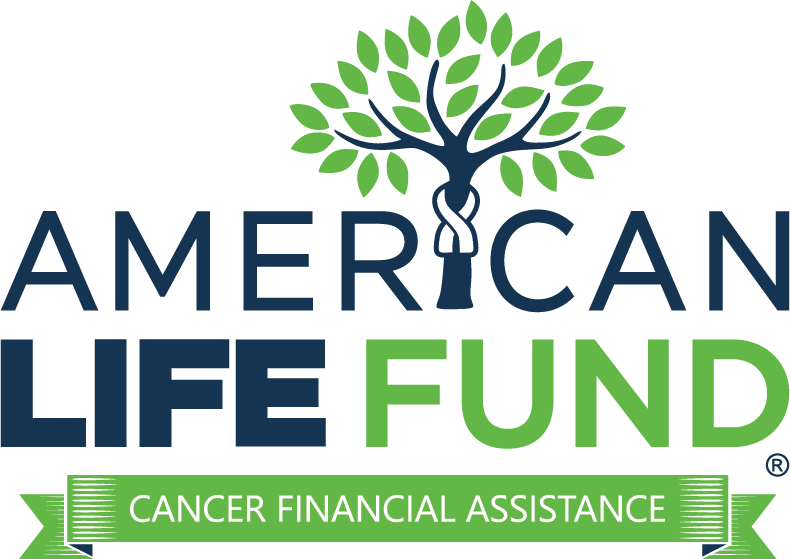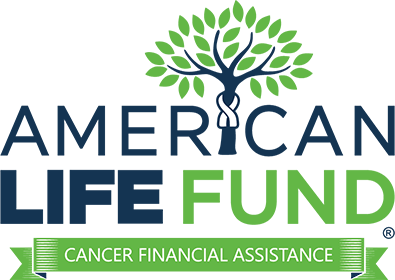A cancer diagnosis doesn’t just impact your health—it affects your ability to work, pay bills, and maintain stability in ways that many people don’t anticipate. Imagine trying to focus on spreadsheets or customer calls while battling crippling fatigue, nausea, or brain fog from chemotherapy. Some patients manage to adjust their schedules, while others find even part-time work impossible.
Financial concerns add another layer of stress. Cancer treatment isn’t cheap—the average cost for chemotherapy can range from $10,000 to $200,000 per year, and missing work for medical appointments or recovery can quickly drain savings. If you rely on employer-sponsored health insurance, leaving your job could mean losing coverage just when you need it most.
Even if you want to keep working, how much flexibility will your employer really offer? While laws like the Family and Medical Leave Act (FMLA) allow some unpaid leave, not all jobs can accommodate remote work, schedule changes, or reduced hours. Some employees fear workplace discrimination or job loss if they disclose their diagnosis.
So, should you try to push through work while undergoing treatment, or is stepping away the better choice? The answer depends on multiple factors, including your treatment plan, financial situation, and available support options. Understanding all your choices—including financial lifelines like viatical settlements—can help you make the best decision for your health and stability.
How Will Cancer Treatment Affect My Ability to Work?
Before deciding whether to keep working, consider how your cancer treatment might impact your energy levels, focus, and overall well-being. Some treatments, like chemotherapy and radiation, can cause fatigue, nausea, or brain fog, making it harder to manage daily tasks. Others may have minimal side effects, allowing you to continue working with adjustments.
Talking to your health care team about what to expect can help you plan ahead. In certain circumstances, you may be able to modify your schedule or workload to make things more manageable. If you’re unsure how treatment will affect you, starting with reduced hours or medical leave could give you flexibility while you assess how you feel.
Can I Afford to Stop Working?
Cancer treatment isn’t just physically exhausting—it can be financially devastating. A study published in the Journal of Clinical Oncology found that the average out-of-pocket cost for cancer patients is $5,000 per year for those with insurance, but uninsured patients can face bills exceeding $150,000.
Without a stable income, everyday costs like rent, mortgage, child care, and groceries can become overwhelming. Nearly 63% of cancer patients face financial hardship due to medical expenses, according to the American Cancer Society. Before making a decision about quitting your job, here’s what to evaluate:
🔹 Do you have enough savings to cover treatment and living expenses?
- A study by the National Cancer Institute found that 42% of cancer patients exhaust their entire life savings within two years of diagnosis.
- According to the Federal Reserve, nearly 40% of Americans don’t have $400 in emergency savings—far from enough to cover months of treatment and lost wages.
🔹 What benefits does your employer offer?
- Paid sick leave: Some employers offer paid time off, but it’s often limited to two weeks.
- Short-term disability insurance: If your employer offers it, this can cover 50-60% of your salary for up to six months.
- Long-term disability insurance: Covers 40-60% of income but usually has a 90-day waiting period before payments start.
🔹 Can you take unpaid leave under the Family and Medical Leave Act (FMLA)?
- FMLA provides up to 12 weeks of unpaid, job-protected leave, but not all workers qualify.
- Small businesses (under 50 employees) are exempt, meaning millions of workers don’t have this protection.
- Even if eligible, 12 weeks is often not enough for those undergoing chemotherapy, radiation, or surgery recovery.
🔹 How will quitting affect your health insurance?
- COBRA: Lets you keep your employer’s health insurance for 18 months, but costs $600–$1,000 per month on average (Kaiser Family Foundation).
- Medicaid: If your income drops below 138% of the federal poverty level ($20,120 for a single person in 2024), you may qualify.
- Medicare: Available if you are 65+ or have a qualifying disability.
- A Spouse’s Plan: Many employer-sponsored plans allow spouses to enroll after a major life event.
A Harsh Reality: Many Patients Work Through Treatment Because They Have No Choice
A study published in Cancer Medicine found that 27% of cancer patients continue working despite severe physical limitations, while a 2022 survey by the American Cancer Society found that 73% of patients experience workplace disruptions due to treatment.
Understanding your financial safety net before making a decision can help prevent financial hardship while allowing you to prioritize your health. If traditional options don’t cover the gap, alternative financial solutions—like viatical settlements—may help ease the burden.
What Are My Employment Options If I Can’t Work Full-Time?
If continuing full-time work feels impossible, there may be ways to adjust your employment options instead of quitting completely. Many cancer patients find that modifying their schedule or taking temporary leave can help them balance treatment and financial stability.
Here are some alternatives to consider:
- Medical Leave: If you need time off but want to return to work, the Family and Medical Leave Act (FMLA leave) allows eligible employees to take up to 12 weeks of unpaid leave while keeping their job and health insurance coverage.
- Reduced Hours or Remote Work: Some employers offer part-time schedules, job modifications, or work-from-home options to accommodate employees with health conditions.
- Long-Term Disability Insurance: If your employer provides this benefit, you may qualify for partial income replacement if you’re unable to work due to a medical condition.
- Early Retirement: If you are close to retirement age, your pension scheme or other benefits may allow you to stop working earlier than planned.
Talking to your human resources department can help you understand what options are available. If your employer doesn’t offer flexibility, you may need to explore state laws or federal law protections to see what applies to your situation.
How Will Quitting My Job Affect My Health Insurance?
If you’re considering leaving your job, one of the biggest concerns is health insurance coverage, especially when undergoing cancer treatment. Losing employer-sponsored insurance can make it harder to afford doctor visits, medications, and treatments, so it’s important to understand your options before making a decision.
Here are a few ways to maintain health insurance if you leave your job:
- COBRA: This federal program allows you to keep your employer’s health insurance for a limited time, though you’ll have to pay the full premium.
- Medicaid: If your income drops after quitting, you may qualify for state-funded health insurance based on financial situation and medical condition.
- Medicare: If you are 65 or older, or qualify due to disability, you may be able to transition to federal government health benefits.
- A Spouse’s Plan: If your partner has job-protected health insurance, you might be able to enroll in their coverage.
- Marketplace Insurance: You can explore individual plans through the Affordable Care Act (ACA) marketplace, though costs will vary based on income and health conditions.
What Happens If I Want to Return to Work After Cancer Treatment?
If you take time off, you may eventually decide to return to work once your health improves. While this transition can be challenging, many cancer survivors find that working again provides a sense of normalcy, financial security, and emotional support.
Here are a few things to consider before going back:
- Talk to Your Employer: Your human resources department can help you understand what accommodations might be available, such as modified hours, remote work, or lighter duties.
- Know Your Legal Rights: Under federal law, the Rehabilitation Act and the Americans with Disabilities Act (ADA) require employers to provide reasonable accommodations for employees returning to work with health conditions.
- Ease Back into Work: If possible, consider part-time hours or a gradual transition to help adjust to the demands of your job.
- Listen to Your Body: While many people feel pressure to get back to work quickly, it’s important to prioritize your health and recovery. If working full-time isn’t feasible, you may need to explore alternative employment options.
Should I Consider Early Retirement If I Can’t Work?
For some cancer patients, returning to work isn’t an option. If your health condition prevents you from working long-term, you might consider early retirement or other financial support programs.
Here are some factors to weigh before making a decision:
- Pension Scheme & Retirement Benefits: Some employers offer ill-health retirement benefits, allowing you to access retirement funds earlier than usual.
- Social Security Disability Insurance (SSDI): If you’re unable to work due to a medical condition, you may qualify for SSDI, which provides monthly income through the federal government.
- Savings & Investments: If you have personal savings, retirement accounts, or other assets, they may help bridge the gap if you leave work permanently.
- Long-Term Disability Insurance: If your insurance company offers this benefit, it may provide higher income replacement if you can’t work.
Leaving the workforce is a major decision, you may want to talk to an independent financial adviser before choosing early retirement. In certain circumstances, alternative financial solutions may allow you to maintain financial stability without tapping into retirement funds too soon.
What Support and Resources Are Available for Cancer Patients?
Managing work and finances during cancer treatment can be stressful, but you don’t have to do it alone. There are resources available to provide emotional support, financial guidance, and legal protections.
Here are some places to turn for help:
- Cancer Support Groups: Connecting with a cancer survivor or others in a similar situation can offer encouragement and advice. Organizations like the American Cancer Society provide counseling and peer support.
- Legal Rights & Job Protections: The Family and Medical Leave Act (FMLA) and the Rehabilitation Act protect employees from job loss due to medical leave. State laws may also provide additional benefits.
- Social Workers & Patient Advocates: Many hospitals have social workers who can help you navigate employment options, medical leave, and financial assistance.
- Financial Assistance Programs: If you’re facing financial strain, organizations like CancerCare and federal government programs may help with medical costs, unpaid leave, or transportation expenses.
How Can a Viatical Settlement Help If You Stop Working?
Deciding whether to continue working, reduce hours, or stop working altogether is a deeply personal choice. While your health should always come first, the financial impact of that decision can’t be ignored. Medical bills, lost income, and daily expenses can add stress at a time when you should be focusing on your well-being.
A viatical settlement is one option that many cancer patients don’t realize they have. This allows individuals with late-stage cancer or other life-threatening illnesses to access funds from their life insurance policy while they are still alive. Instead of worrying about covering bills or depleting savings, a viatical settlement provides immediate financial relief that can be used however you need, whether for medical treatment, living expenses, or even spending meaningful time with loved ones.
At American Life Fund, we believe in educating cancer patients about all their financial options. We’ve helped hundreds of people through the viatical settlement process with care, compassion, and transparency – making sure they get the highest value for their policy.
If you’re facing tough financial decisions and want to explore whether this option is right for you, we’re here to help. Fill out our form today to see if you qualify for a viatical settlement.





